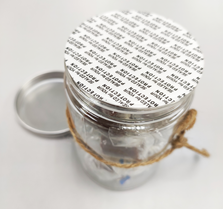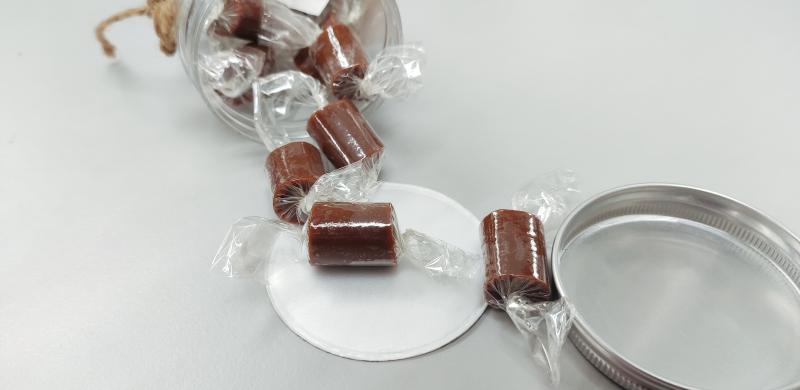Pressure senstive cap liners
Pressure Sensitive cap liners aka Torque Seal, Pressure Seal and Torque Activated seals are polystyrene foam liners with a pressure sensitive coating. They are designed to simplify the sealing process by adhering to the lips of the bottles; either plastic or glass; to create a good seal to protect the solid products within them. The common designs of these liners that are found in the today’s market are plain and with printing of “SEALED for YOUR PROTECTION”. In compliance to the FDA Compliance 21 CFR 175:125(b) (Pressure Sensitive Adhesives), the liners can be used with food products.
Precaution in using Pressure Sensitive Cap Liners.
Although the sealing process is greatly simplified to work at room temperature and after securing the cap onto the containers, the sealability of the liners can be affected by the surrounding temperature, applied torque, and age of the product. Poor storage conditions along with exposed to the elements such as air and light can greatly diminish the sealing capabilities and shelf life of the seals. Following so, the seals are to be inspected after 12 hours after sealing to ensure its effectiveness.
Why Should You Stop Using Them?
First off, the Pressure Seals are not tamper-proof as the seal can be reseal by attempting to apply force again. By doing so, it masked the seal was removed beforehand and resealed again. Displaying this fact in lack of evidence retention only weakens the credibility of the seal.
The CPG Sec. 450.500, Tamper-Resistant Packaging Requirements for Certain Over-the-Counter Human Drug Products require that all OTC human drug products (except dermatologic, dentifrices, insulin and throat lozenges) (21 CFR 211.132), cosmetic liquid oral hygiene products and vaginal products (21 CFR 700.25), and contact lens solutions and tablets used to make these solutions (21 CFR 800.12) be packaged in tamper-resistant packaging. As such, Pressure Seals are not compliant to be used.
Secondly, Pressure Seals cannot seal liquid content and the liquid can push the liner off. This comes to show the sealing strength of the pressure seal is comparatively lower than other market seals. Along with its poor sealing prowess and the uncertainties of a good seal, it lowers the guarantee of the products the seals claim to protect.
Thirdly, the shelf life of the Pressure Sensitive Cap Liners are 60 days, which is rather short for low volume consumers. To emphasize further, exposure to the unfavorable conditions and temperature can cut its shelf life even further. This worsens the versatility of the seals to be used that they were designed for.
“As such, Pressure Seals are not compliant to be used”
-

Reusing the same seal onto the same bottle after opening.
So, What to do now?
It is highly suggested that the users of seals to considered the test the packaging solutions actively. Only by using a good seal can gurantee the products credibility, freshness, shelf life and brand security. We embolden the customers to seek out better packaging solutions for the best choice for the end consumer’s experience.
In our professional opinion, we strongly suggest the use of induction seals to create a good hermetic seal and ensure the one of the best packaging solutions for your customer’s satisfaction.
